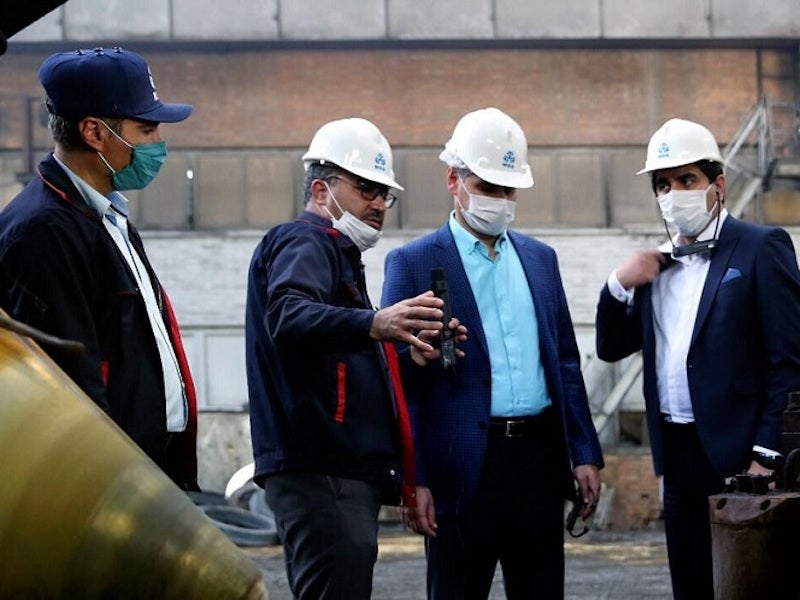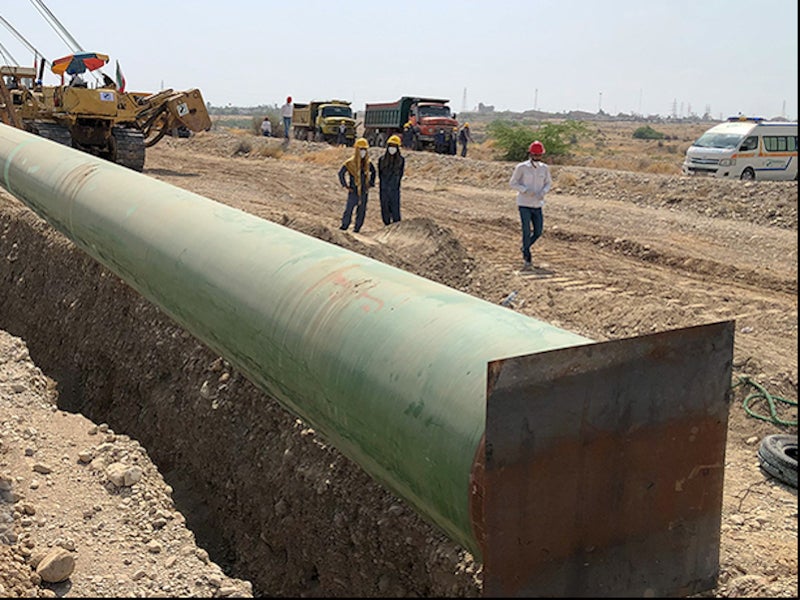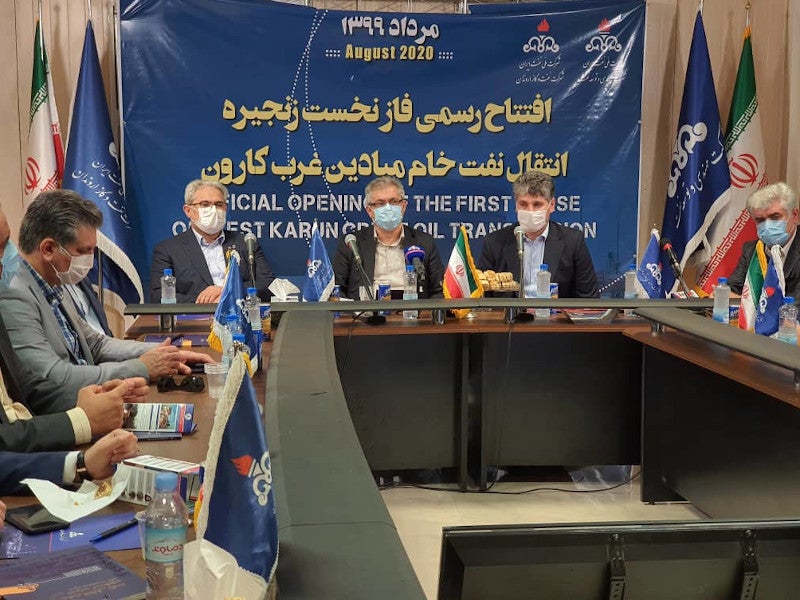The Goreh-Jask pipeline along with the development of a new oil export terminal at Jask is a strategic project for Iran.
The new pipeline will have the capacity to transfer up to one million barrels of crude a day from Goreh in the Bushehrport city in the Gulf to a new oil terminal at Jask in the Sea of Oman. It will allow Iran to bypass the Strait of Hormuz for its oil exports.
Iran’s state-owned Petroleum Engineering and Development Company (PEDEC) is implementing the project under a build-operate-transfer (BOT) contract with its parent company National Iranian Oil Company (NIOC), and the ownership of the project will be transferred to NIOC after 18 years of operation.
The oil pipeline and terminal project is being developed in two phases with an estimated investment of £1.44bn ($1.8bn), which also includes £601m ($750m) for building an oil export terminal on Jack Island.
Phase one construction works on the project were started in June 2020 with commissioning scheduled for the end of the year, while the start of oil exports through the Jask terminal is expected by March 2021.
With the completion of the integrated pipeline and terminal project, Jask is expected to be the second biggest oil export terminal in the country after the Kharg Island terminal in the Gulf that currently accounts for approximately 90% Iran’s oil exports through the Strait of Hormuz.
The Goreh-Jask pipeline and the Jask oil terminal project is expected to create 800 direct and 1,700 indirect jobs.
Pipeline route and the terminal site details
The 1,000km-long crude oil pipeline will origin at the Goreh village in the Bushehr province and run to the Fars province, Hormuzgan, and to the western region of Jask Island before terminating at the new oil terminal on the Makran coast along the Sea of Oman.
The oil terminal site forms part of a 5,000 acres coastal land situated approximately 65km west of Jask city, near Mubarak Mount. The land was acquired by NIOC for the construction of special oil, gas, refining, and petrochemical projects.
Goreh-Jask pipeline development
The Goreh-Jask pipeline project involves the construction of 42in-diameter pipelines for a total distance of 1,000km, five pump houses, three pig launcher/receiver stations, as well as submarine pipelines, a stilling basin, 400km of transmission lines, ten power stations, and other auxiliary facilities.
In phase one, the pipeline project includes the major portion of the pipeline, pumping stations 2 and 4, two pigging stations, and the setting up of electricity supply for the terminal. This phase will add a transportation capacity of 300,000 barrels of oil a day.
The second phase will involve the development of a 134km-long pipeline section between pump station 3 in Kordeh and pump station 4 in Fedagh.
Jask oil terminal details
The oil terminal project at the Jask Port will include the construction of light and heavy crude oil storage tanks in three stages, with each stage adding a capacity of 10 million barrels.
Stage one comprises 20 floating roof metal tanks of 500,000 barrels capacity each to store crude oil pumped from the pipeline and to supply it to six series of seabed pipelines and three single point moorings (SPMs).
The terminal also includes the construction of loading facilities for very large crude carriers (VLCCs) and metering facilities for crude oil.
Contractors involved with the Goreh-Jask pipeline project
Soroush Energy (SEPID), a special purpose vehicle of Pasargad Energy Development Company (PEDC), was appointed as the overall consultant for the project.
Mobarakeh Steel and Oxin Steel of Khuzestan were awarded the contract to produce sheet metal for the pipeline.
Danial Petro-Tarhandishan joint venture was awarded the engineering, procurement, and construction (EPC) contract for phase two works of the project in April 2019. The contract was awarded in April 2019 under the consultancy of Sazeh.
The contract for manufacturing and maintaining the electro-pumps was awarded to Pumpiran and PetCo in September 2019.
Greece’s Archirodon Group was awarded the contract for the construction of coastal and sea facilities comprising port, terminal, and pipeline.
While RAO Rosneftegazstroy and Marcon are the EPC contractors for the Jask oil loading terminal. Pars Oil and Gas Company was awarded the development contract for the Jask oil terminal in June 2019.
Other participants of the oil terminal project include the Pension fund of Iran, Russia’s Zalvand, and a consortium of international banks including Sberbank, which is also the project’s financial consultant.





